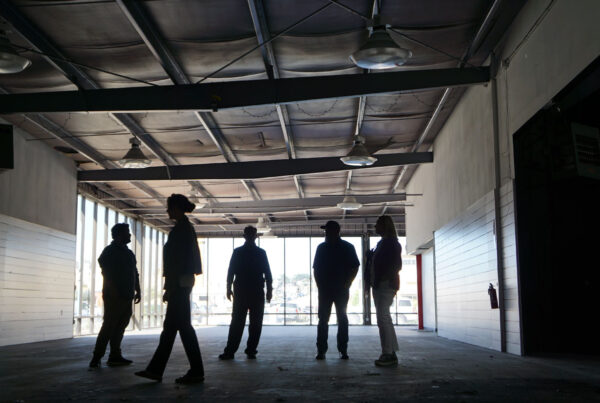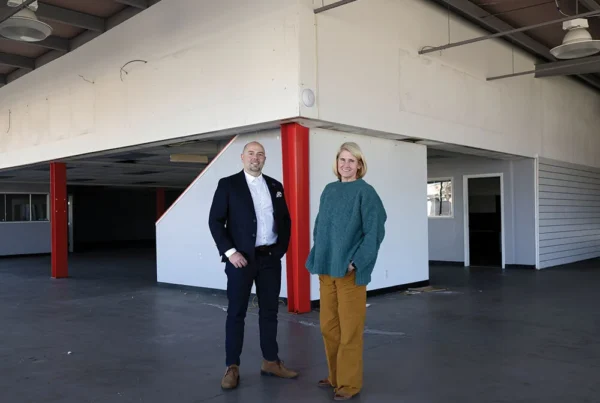We represent across the state, we urge you to call your state representatives.
On behalf of the Meals on Wheels California Board of Directors and the over 64 agencies we represent across the state, we urge you to call your state representatives.
Without question, this is one of the most difficult budget crises our state has ever seen. While we understand the need for fiscal responsibility and the need to reduce state spending, we find it unconscionable for us to balance this budget on the backs of lowincome seniors already struggling. The Governor’s proposal to cut $111 million over the next three years from California’s Modernizing Older Californians Act is simply reprehensible and leads thousands of older adults towards hunger.
This impact is draconian and will have a lasting impact across the state, as it represents a 60% reduction in meals and nutrition services, according to California Association of Area Agencies on Aging. This reduction will lead to increased waitlists for Meals on Wheels services, hunger, emergency visits, adult protective service calls, unnecessary early institutionalization, preventable malnutrition deaths, and a rise in senior homelessness— the fastest-growing homeless population.
Our legislative leaders are well aware of this. Numerous studies and data points have highlighted this issue. For instance, a recent Kaiser Family Foundation Health News report revealed that the rate of older Californians dying of malnutrition has drastically accelerated since 2018.
According to the report, deaths attributed to malnutrition more than doubled, from about 650 in 2018 to roughly 1,400 in 2022. Among large urban counties, Sacramento, the Governor’s own backyard, had the highest rate of malnutrition deaths among those 65 or older from 2020 through 2022, according to the KFF Health News report.
And the need to expand, not disrupt and underfund, older adult nutrition programs is expected to grow rapidly as Americans aged 65 and older are one of the fastest-growing populations across the nation. Californians aged 85 and older, the group most prone to malnutrition, are projected to grow by about 420,000, or 54%, from 2020 to 2030, according to state Department of Finance projections. Concurrently, the number of people 55 and over seeking homeless services increased by 84%—more than any other age group. Already, one in six older adults is food insecure. Food insecure seniors are:
• 50% more likely to have diabetes
• 300% more likely to suffer from depression
• 60% more likely to have heart failure
• 30% more likely to have functional impairment
• 200% more likely to have gum disease and asthma
Meals on Wheels is a proven solution to these issues. It has a history of keeping seniors healthy, independent, connected, and out of costly institutional care, thereby saving public funds. A meta-survey of 38 studies showed Meals on Wheels services:
• Reduced use of costly health care services
• Reduced nursing home use and increased ability to age in place
• Reduced health care costs
• Increased food security
• Improved diet quality
• Reduced or slowed decline in nutritional risk
• Reduced social isolation and loneliness
• Reduced falls and increased home safety
A perfect storm is brewing as we grapple with the immense weight of this budget deficit and the need to continue to support the increasing older adult population which has the fewest options to address their needs. Now is not the time to exacerbate the growing problems among seniors and the widening gap in senior hunger needs. We urge our local and state legislators to propose cuts that do not impact existing programs and services and instead delay new benefits and new costs. We urge our legislators to stand behind the thousands of seniors across our state who rely on Meals on Wheels as their only source of nutrition. Cutting this funding would be shortsighted, harmful, and counter to the goals of California’s Master Plan for Aging and to our Californian values.
We urge the Governor to reconsider his decision and the Legislature to continue to reject this proposal and ask that you join us in our “Protect the Meal” campaign.
Sincerely,
Meals on Wheels of California Board of Directors
Brent Wakefield – MOWCA President – Meals on Wheels San Diego
Christine Winge – MOWCA Vice President – Meals on Wheels Monterey Peninsula
Laurie Hartmann – MOWCA Treasurer – Meals on Wheels Solano County
Daryl Twerdahl – MOWCA Executive Director
Willy Gloria – MOWCA Advocacy Chair
Alejandro Lupercio – Meals on Wheels Orange County
Charlie Deterline – SOS Meals on Wheels
Chris Baca – Meals on Wheels West
Jennifer Steele – Meals on Wheels San Francisco
Raymon Cancino – Community Bridges – Meals on Wheels for Santa Cruz County
Siri Perlman – Jewish Family Service of Los Angeles
Veronica Dover – St. Vincent Meals on Wheels







